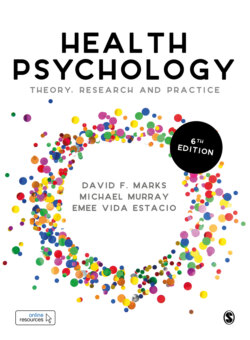Читать книгу Health Psychology - Michael Murray - Страница 140
На сайте Литреса книга снята с продажи.
Randomized Controlled Trials
ОглавлениеRandomized controlled trials (RCTs) involve the systematic comparison of interventions using a fully controlled application of one or more ‘treatments’ with a random allocation of participants to the different treatment groups. The statistical tests that are available have as one of their assumptions that participants have been randomly assigned to conditions. In real-world settings of clinical and health research, the so-called ‘gold standard’ of the RCT cannot always be achieved in practice, and in fact may not be desirable for ethical reasons.
We are frequently forced to study existing groups that are being treated differently rather than have the luxury of being able to allocate people to conditions. Thus, we may in effect be comparing the health policies and services of a number of different hospitals and clinics. Such ‘quasi-experimental designs’ are used to compare treatments in as controlled a manner as possible, when, for practical reasons, it is impossible to manipulate the independent variable, the policies, or allocate the participants.
The advantage of an RCT is that differences in the outcome can be attributed with more confidence to the manipulations of the researchers, because individual differences are likely to be spread in a random way between the different treatments. As soon as that basis for allocation of participants is lost, then questions arise over the ability to identify causes of changes or differences between the groups; in other words, the internal validity of the design is in question.
Randomized controlled trials are complex operations to manage and describe, which has led to a difficulty in replication of RCTs. To help solve this problem, the CONSORT guidelines for RCTs published by Moher et al. (2001) and the TREND statement for non-randomized studies (Des Jarlais et al., 2004) were intended to bridge the gap between intervention descriptions and intended replications. These guidelines have driven efforts to enhance the practice of reporting behaviour change intervention studies. Davidson et al. (2003) expanded the CONSORT guidelines in proposing that authors should report: (1) the content or elements of the intervention; (2) the characteristics of those delivering the intervention; (3) the characteristics of the recipients; (4) the setting; (5) the mode of delivery; (6) the intensity; (7) the duration; and (8) adherence to delivery protocols/manuals.
Another issue with RCTs has been bias created by industry sponsorship. Critics claim that research carried out or sponsored by the pharmaceutical industry should be treated with a high degree of suspicion as the investigators may have a hidden bias that can affect their ability to remain independent. Lexchin et al. (2003) carried out a systematic review of the effect of pharmaceutical industry sponsorship on research outcome and quality. They found that pharmaceutically sponsored studies were less likely to be published in peer-reviewed journals. Also, studies sponsored by pharmaceutical companies were more likely to have outcomes favouring the sponsor than were studies with other sponsors (odds ratio 4.05; 95% confidence interval 2.98–5.51). They found a systematic bias favouring products made by the company funding the research.
There have been significant abuses of RCTs in clinical and drug trials. Many trials have not been registered so that there is no record of them having been carried out. Trials showing non-significant effects have been unreported, which distorts the evidence base by suggesting that a drug is better than it actually is. Placebo control conditions have been manipulated to enhance drug effects. The double-blind requirements for RCTs have been broken. Investigators who have received funding from drug companies have written biased or misleading reports. Ghost writers have been employed to write glowing reports. These abuses have led to the wastage of public funds on ineffective drugs and treatments, missed opportunities for improving treatments, and trials being repeated unnecessarily.
The AllTrials movement is campaigning to remove these abuses and to obtain publication of all clinical trials (see www.alltrials.net/).
